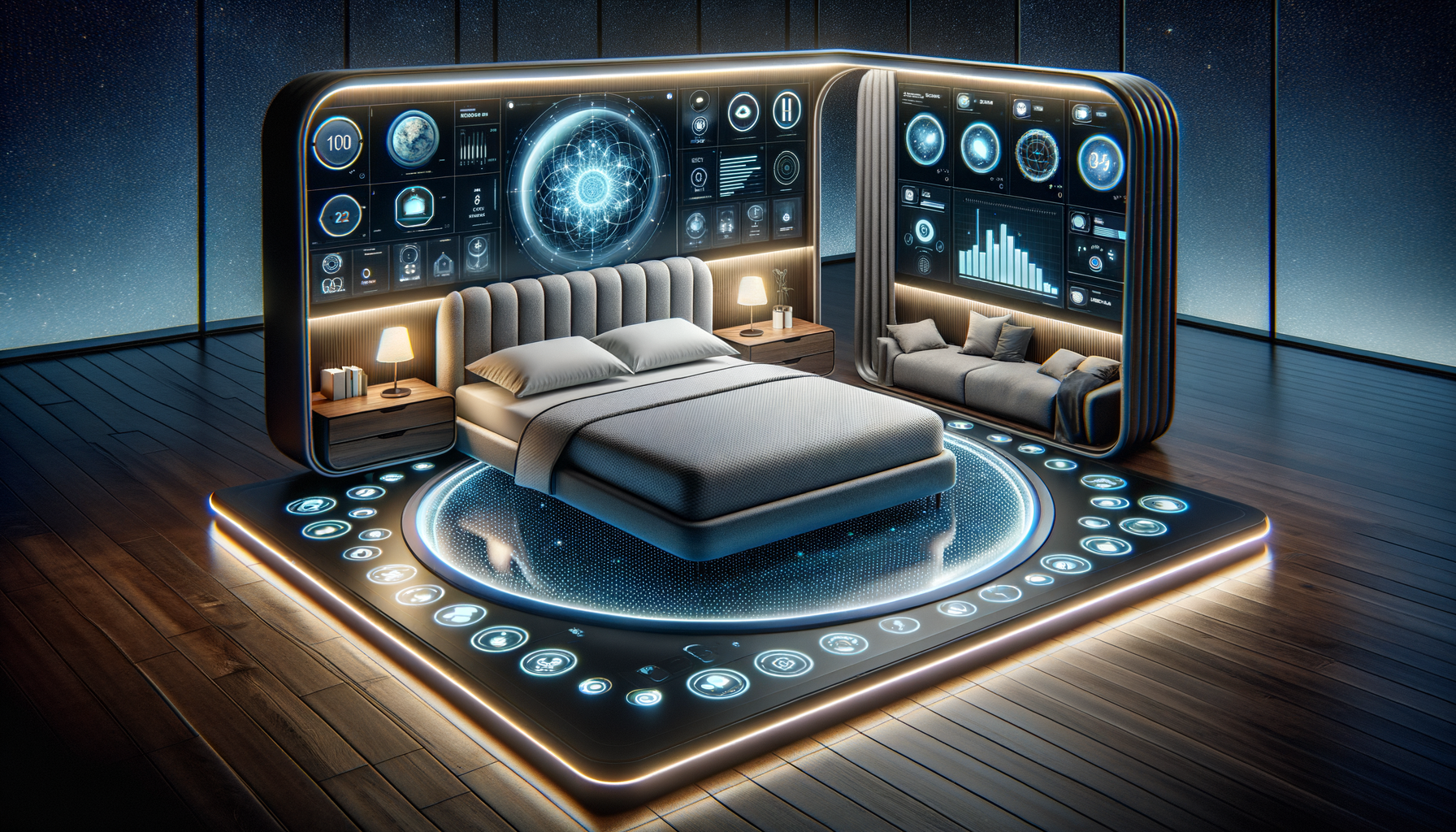Understanding Smart Beds: A Technological Leap in Sleep
Smart beds represent a significant advancement in sleep technology, blending innovation with comfort to create a personalized sleeping environment. Unlike traditional beds, smart beds are equipped with sensors and connectivity features that monitor your sleep patterns, adjust firmness, and even regulate temperature. This integration of technology aims to improve sleep quality by catering to individual needs and preferences.
One of the standout features of smart beds is their ability to track sleep metrics. These beds can monitor heart rate, breathing patterns, and movement, providing valuable insights into your sleep cycles. This data is often accessible via a smartphone app, allowing users to analyze their sleep quality and make informed decisions to improve it.
Moreover, smart beds often come with customizable settings. Users can adjust the firmness of the mattress to their liking, ensuring optimal comfort. Some models even offer dual-zone settings, allowing partners to choose different firmness levels on each side of the bed. This feature is particularly beneficial for couples with differing comfort preferences.
The Benefits of Smart Beds: More Than Just Comfort
Smart beds offer a range of benefits that go beyond traditional comfort. By providing a tailored sleeping experience, they can significantly enhance sleep quality and overall health. One of the primary advantages is the ability to reduce sleep disturbances. With features like adjustable firmness and temperature control, users can create an ideal sleeping environment that minimizes disruptions.
Additionally, smart beds can help alleviate common sleep-related issues such as snoring and sleep apnea. Some models are designed to automatically adjust the bed’s position to open airways, reducing snoring and promoting better breathing. This can lead to a more restful and uninterrupted sleep.
For those who struggle with chronic pain or discomfort, smart beds can offer relief through targeted support. By adjusting the bed’s settings, users can find a position that alleviates pressure points and supports the spine, reducing pain and stiffness.
Comparing Smart Bed Features: What to Look For
When it comes to choosing a smart bed, there are several features to consider. One of the most important is the level of adjustability. Beds that offer multiple firmness settings and dual-zone capabilities provide greater flexibility and personalization.
Connectivity is another crucial factor. Smart beds should easily integrate with other smart home devices and offer a user-friendly app interface. This allows users to access sleep data and adjust settings conveniently.
Some smart beds come with additional features such as massage settings, under-bed lighting, and even voice control. While these features can enhance the sleeping experience, it’s essential to prioritize those that align with your specific needs and lifestyle.
Finally, consider the long-term investment. Smart beds can be more expensive than traditional beds, but the potential health benefits and improved sleep quality may justify the cost. Evaluate the warranty and customer support options to ensure a satisfactory purchase.
Smart Beds and Health: A Closer Look at the Benefits
Smart beds are not just about luxury; they also offer significant health benefits. By providing personalized support and comfort, they can help improve overall well-being. For instance, the ability to adjust the bed’s position can aid in circulation, reduce swelling, and alleviate joint pain.
Moreover, the insights gained from sleep tracking can be invaluable. Users can identify patterns and factors affecting their sleep, such as stress or diet, and take steps to address them. This proactive approach can lead to better sleep hygiene and improved health outcomes.
For individuals with specific health conditions, smart beds can offer targeted solutions. For example, those with acid reflux may benefit from adjustable beds that elevate the upper body, reducing symptoms and promoting better digestion.
The Future of Smart Beds: Innovations on the Horizon
As technology continues to evolve, the future of smart beds looks promising. Upcoming innovations may include even more advanced sensors, offering deeper insights into sleep health. Artificial intelligence could play a role in predicting and addressing sleep issues before they become problematic.
Integration with other health devices is also likely to improve. Smart beds could potentially sync with wearable technology, providing a comprehensive view of an individual’s health and lifestyle.
Moreover, as the demand for smart home technology grows, smart beds may become a standard feature in modern homes. This shift could lead to more affordable options, making smart beds accessible to a broader audience.
Overall, smart beds are set to redefine the way we think about sleep, offering a blend of comfort, health benefits, and technological innovation that caters to the needs of the modern sleeper.




Leave a Reply